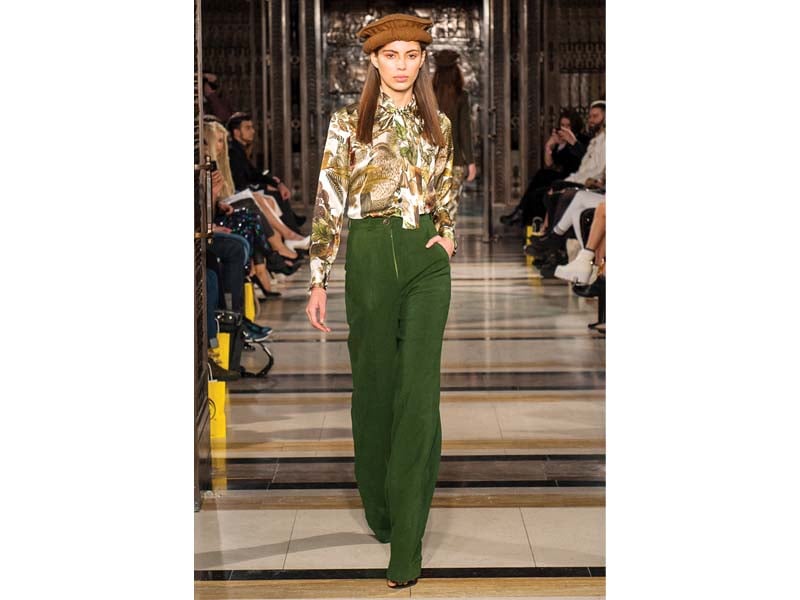
This year, the programme will span over eight months, comprising of intensive training, interactive sessions with foreign experts, and a catwalk show and showcasing by participating fashion houses. The brands that took part in the programme in its debut year included The House of Kamiar Rokni, Wardha Saleem, Akif Mehmood and Zaheer Abbas, all of whom interacted with UK-based professionals in various fields associated to fashion.
British Council Manger Arts Talha Mufti spoke to The Express Tribune to explain what one can expect from the second cycle. “Pakistan has always been known for its textiles, excellent manufacturing, and quality craftsmanship standards with hand-finishing,” he said. “However Pakistani labels have never emerged on mainstream fashion in the UK. Most showcases of Pakistani fashion focus on the Pakistani or South Asian diaspora as their target market for bridal couture and traditional apparel.”
He explained that with the exception of a few changes in terms of eligibility criteria, the programme will function in the same way as it did in 2015. “This year, Pakistani retail brands can also apply whereas last year we offered the programme to only designer-led businesses. Also, last year we were looking at labels which had been around for five to eight years, but this time the programme is open to brands that have been around for three to 15 years.” Another notable change is that this year, the British Council has launched a nation-wide open call for applications, whereas in 2015, Council advisors Maheen Khan and Zahir Rahimtoola were requested to present nominations. The nominees were then approached directly with offers.
Curtain call: PSFW 2016 bows out
Mufti also noted the success of the recently established Khaadi flagship store in the UK that has met an overwhelming response from the locals. “The recent opening of Khaadi’s store in London generated interest in Pakistani fashion in the UK. With its success comes a clear indication of the great potential of Pakistani designer apparel to make a breakthrough in European markets.” He added that with the right marketing strategies and product branding skills, more retail fashion brands from Pakistan can carve larger clientele in European countries. “This is the gap that Fashion DNA Pakistan aims to fill. With the GSP Plus status afforded to Pakistani exports to the EU, this is the ideal moment for Pakistani fashion businesses to open up to wider market possibilities.”
For designer Zaheer Abbas, the first cycle of Fashion DNA Pakistan was an incredible learning experience. “I had an idea of what’s in store for on-ground training in London before the show but witnessing the ground realities was a different experience altogether,” Abbas told The Express Tribune. One of the key things he learnt from the programme was to maintain consistency at all times. “You have to have a regular presence in order to be taken seriously,” he explained. “It’s not about showing in London at a prestigious event but the whole idea is to generate business and that’s only possible if one is regular at such events. I’ll definitely do it again if given the chance.”
Published in The Express Tribune, May 28th, 2016.
Like Life & Style on Facebook, follow @ETLifeandStyle on Twitter for the latest in fashion, gossip and entertainment.



1731570357-0/elon-musk-(1)1731570357-0-165x106.webp)
-(1)1717678110-0/Kendrick-(1)-(1)1717678110-0-165x106.webp)



1627551707-01732470336-0/ipiccy_image-(15)1627551707-01732470336-0-270x192.webp)
1732442095-0/Express-Tribune-(3)1732442095-0-270x192.webp)







COMMENTS
Comments are moderated and generally will be posted if they are on-topic and not abusive.
For more information, please see our Comments FAQ